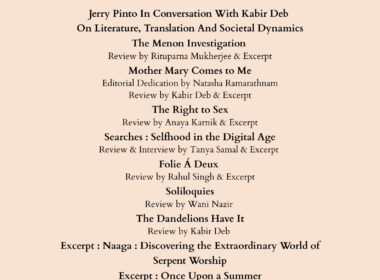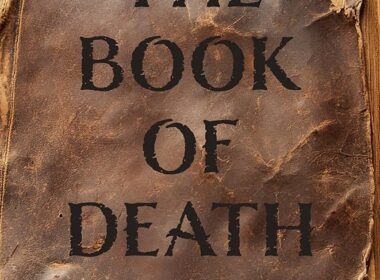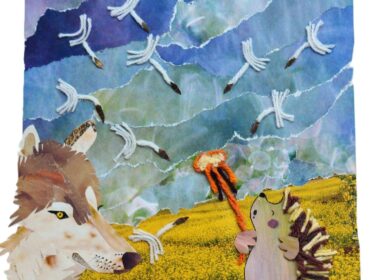Little Bride - The True Story of a Little Afghan Girl
By Roshna Amiri

I’ve lost my way. I don’t know what to do. How do I save her? I’ve been going back and forth all morning, and I’ve memorised the entire courtyard. I’ve bitten my thumbnail so much that it’s close to bleeding.
As long as I have breath in my body today, I will curse Sher Khan in my heart. “God damn you, Sher Khan! How can you do this? How can you bring yourself to do this?” My heart is not consoled. The sky has vented its own grievances on a few of my innocent plants. Who can I take my anger out on?
The rains knocked down the apple blossoms and broke the tomato plant. Mud from the courtyard wall I repaired last week has fallen again, and the paint on the walls is ruined by muddy rainwater from the roofs. Women’s lives are like this courtyard: fix one corner and another breaks.
When I close my eyelids to let my tears flow, I feel a pain under the corner of my right eye. When I touch it, it hurts more. I pick up my small mirror from under the mattress and look at myself. I run my fingers through the white strands of my hair, and I break down even more. My eye is sore again, with the mark of Sher Khan’s slap from last night. It’s turned black and blue. I examine the details of my face, my bloodshot green eyes, the colour of grass where a sheep has been slaughtered. My golden hair is turning grey at 31 years old, my lips are dry, and I have broken teeth from Sher Khan’s fist last night.
I marvel at how much I look like Laalah, or rather, Laalah looks like me. Because the daughter follows her mother, not the other way around. I run my hand through her golden hair and look at her innocent face as she sleeps. She cried so much last night that she fell asleep on my knees. I brush the hair out of her face. A face that will be the guest of a monster’s gaze tonight. Again, my resolve breaks, and I cover my mouth with my hand, lest the sound get too loud and wake her up.
In my heart, I curse Sher Khan a thousand times. May God bring your death, Sher Khan. May God take you from us. May I become a widow and sit in your sorrow? What kind of father are you? How can you say you have a conscience? Don’t you feel sorry? Don’t you feel sorry at least for your daughter? I look out the window, and it’s no longer raining. The sky’s heart is empty, but my heart is flooded with anger.
I used to get annoyed when my grandmother insisted I would eventually agree with her—she never liked girls. She would say, “I felt like boiling water had been poured over my head” after hearing of a new girl’s birth, and claimed girls are only trouble. I always told her she was wrong and refused to accept her view on my life.
She would say God created the daughters of this country from pain. “When you have a daughter, you have the greatest pain. The pain you see, you feel, but you can’t do anything about the suffering she’s going through because you gave birth to a daughter, and the decision about a daughter’s life is in the hands of a man.” I always disagreed with her, even when I gave birth to Laalah. Even when Laalah took her first steps. My little tulip was my solace, not my pain.
Three days ago, I believed my grandmother for the first time when Sher Khan said he would give his daughter as blood money for his brother’s freedom. The second time was yesterday, when they took Laalah to a man even older than her grandfather. The third time was last night. I now believe my grandma. Last night, I grabbed Sher Khan by the collar and told him to fear God. “How can you marry a nine-year-old girl who hasn’t even started her period to a sixty-year-old man?” When he showered me with slaps, punches, and kicks, and said that he alone could choose what to do with our daughter, I believed my grandmother’s words even more.
“Why did Father say I shouldn’t go to school anymore?” Laalah had asked me. “You said I should study and become a doctor.” Oh, my daughter! “Next year you’ll be in seventh grade, you know, there is no school open for girls after the sixth grade.”
I look at Laalah and see that she has opened her puffy eyes and is asking the same question again. I lift my eyes so my tears don’t fall on her face. I can’t tell her that her father is marrying her off; I can’t scare her any more than this.
“Mother’s beloved daughter! Did you see how many nice bangles Kaka Sattar bought for you? And the Afghan clothes were beautiful too. You liked them a lot. Even your classmate Somayeh was thrilled to see them.” I say this, and cover my mouth with my hand so the sound of my breaking sob doesn’t rise.
Laalah curls up even more in my arms and says in a trembling voice, “No, Mother! I don’t want to go where Father is taking me. I promise I won’t cry for Somayeh’s poisonous bangles anymore. I promise I will never say again, “Buy me clothes like Somayeh.” Uncle Sattar is a bad person. I won’t go to him anymore. He pulled my scarf and smelt my hair. He unbuttoned my collar and said, “Let me see if you have any lumps.”
I feel like my body is being torn apart, and I’m just a spectator.
Laalah! My heart cries.
When I hear Sher Khan’s voice, my blood runs cold. I grip Laalah closer. Maybe I can protect my daughter with my weak hands. I hear the splashing sound of Sher Khan’s footsteps, his feet sinking into rainwater pooled in the courtyard’s holes. He is getting closer. My heart feels ready to burst from my mouth. Laalah raises her head. I press her to my chest again, as if I could hide her. I wish I could put her back into my womb. There, she would always be safe.
When Sher Khan enters the room, I stand up and hide Laalah behind me. He takes off his black turban and twirls his moustache, saying, “Laalah, go gather your clothes. I’ll take you to a school where you can study until the twelfth grade.” Laalah is, of course, delighted and asks, “Really, Father?” Sher Khan laughs wickedly and says, “Yes, my daughter.” I hide Laalah behind me more, while she’s eager to go with her father, not knowing he’s taking her to a slaughterhouse where her childhood will be murdered.
With tears flowing, I beg Sher Khan to change his decision. “She’s a child, her mouth still smells of milk.”
He gestures for Laalah to leave, and I can’t stop him. When she looks at me, Sher Khan says, “Don’t worry, we’ll go first, and then I’ll bring your mother to you too.” I can’t scream and tell her not to go. I can’t scare my daughter any more than this. I can’t bear to see her screaming and calling for her mother, and I can’t bear to see her begging. I can’t do anything but watch my own death before my eyes.
As Laalah rushes out of the room, Sher Khan approaches me with eyes that look like he’s eaten a thousand people, grinding his teeth together, and he softly says, “Woman, I’ve told you a thousand times, the decision about the girl is up to me. Don’t get on my nerves anymore, or I’ll break your arms and legs.”
“She hasn’t had her period yet,” I plead with him, “She’s still a girl, how can she become a sixty-year-old man’s wife? I’m falling at your feet, don’t do it.”
I throw myself at his feet. The strong kick he gives to my chest is so hard I hit the wall from the force of it. He hits me on the head with the stone rosary in his hand and says, “How many times do I have to tell you that my brother Nasir killed someone? We have to pay blood money. Is there anyone else in the tribe besides you who has given birth to a daughter for whom blood money must be paid? Nasir told me that if I give him my daughter to marry away, he’ll give me his lands. What difference does it make if Laalah grows up here or there? If you open your mouth again, I’ll kill you. With the money from Nasir’s land, I’ll get myself a new wife. One who will give me a son.”
Laalah calls out, “Did you call me? I hear something.” I tell her I’m not calling her, I’m only talking to her father. She asks again, “Should I take my Afghani dress too?” Sher Khan tells her to take whatever she likes.
I’m crying and wailing again, begging him not to take my daughter anywhere. But he puts his index finger on his lip and says not to bark like a dog, or he’ll kill me. Laalah asks me if she should take her red doll along with her pink one.
When Laalah leaves, I fall beside the apple tree, which lies broken by the rain. Life has finally broken me, too.
25 year old Roshna Amiri is a Master’s graduate in Educational Management and Leadership living in Afghanistan. She has three manuscripts and a collection of short stories that cannot be published due to the current ban placed by the de facto government and due to the lack of funds. Her stories are mostly about the suffering of Afghan women.





